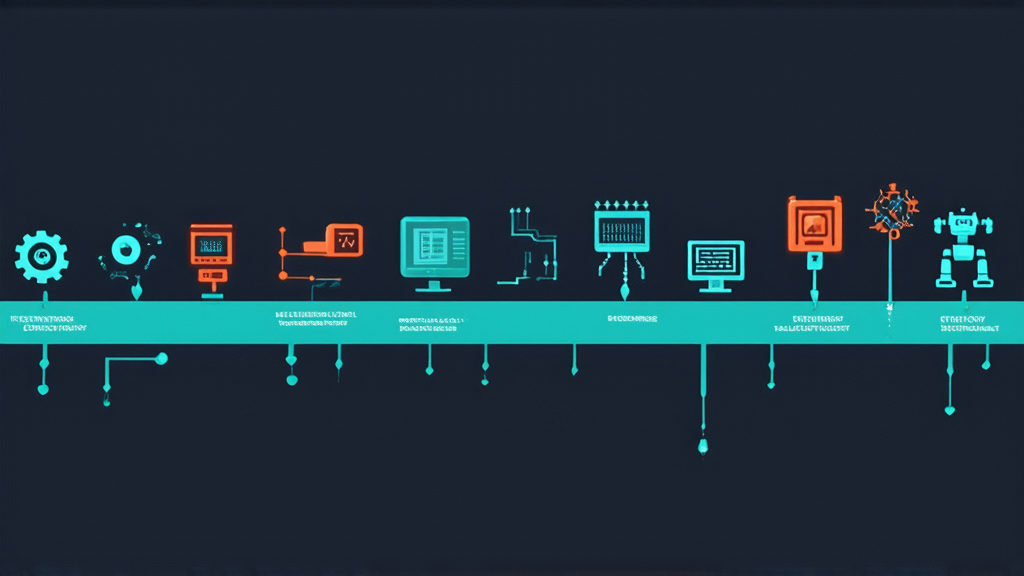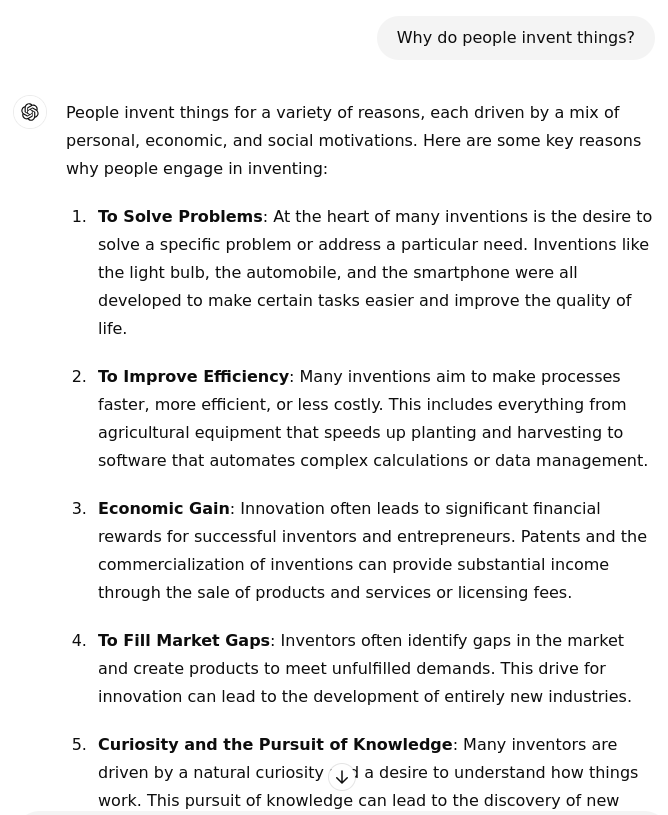Last Invention: AGI | A Very Introductory Non-Technical Article
This article introduces the concept of Artificial General Intelligence (AGI) for those new to the term, explaining how it differs from other technologies and its connection to the idea of technological singularity. If you'd like a more in-depth exploration, I recommend reading my previous article on the subject: Artificial General Intelligence | Possibilities, Dangers, and Strategies
Last Invention: Artificial General Intelligence
Can machines think? This significant question has been a persistent curiosity for many people throughout history. Today, although it may be challenging to call it “thinking,” artificial intelligence technologies have made remarkable strides. Let’s explore the underlying aspects of this question and the developments in this field together.
What does invention mean? According to the Oxford English Dictionary, one of the meanings of the word “invention” is “the action of coming upon or finding; the action of finding out; discovery” Let’s first go back to ancient times and evaluate this definition.

When we look at the evolutionary development of life, we observe that traits “selected” through natural selection (such as mutations and other characteristics that appear in an organism and can be transmitted through reproduction) are passed on to the next generation. For instance, as Homo sapiens, it appears that we have evolved by selecting traits such as the ability to travel long distances on two legs or having extensive sweat glands.
However, at some point in history, something fascinating happened, and in addition to this selection process beyond our control, we began to “find” certain things (inventions) that would give us an advantage. Using tools, of course, is not a characteristic unique to us.
While similar behaviors are observed in many other living beings besides us, none of these species have been able to achieve development by building upon them as we have. The inventions we’ve made have accumulated over time, leading to the formation of our present civilization. We can say that these inventions are one of the most important factors that have brought our civilization to an impressive level incomparable to that of other living beings today. A point to note here is that, for the first time in history, “unnatural” factors began to occupy a significant place in the life of a species. One of the major differences in this process was the transmission of these “invent” things through “knowledge” instead of genes. Initially, this transmission was through observation and imitation, then orally with the emergence and development of language, and finally, reaching its peak with the invention of writing, which made it easy to transmit knowledge to the future.
So how did this event that created the difference occur? This is actually a very important topic, but I will address it in the following sections. For now, I want to connect this introduction, which may have seemed interesting or unnecessary to some of you, to artificial intelligence and machines. Let’s consider this question first: Why do people make certain inventions? The first reason that comes to mind is to solve some of the problems they encounter.

And this short answer is largely correct. People have invented things either to solve a difficulty they face in life or to entertain themselves when they are bored. We can also mention the feeling of curiosity. Although this can also be seen as a problem (the problem of eliminating the sweet but unsettling feeling of curiosity about something 🙂), people sometimes try to find solutions to problems that don’t directly help them survive or pass on their genes to the next generation. However, here I want to focus on the concept of a “problem.” For now, let’s assume that our inventions, one way or another, solve a problem. Then, we can define the word “invention” as “a man-made (unnatural) tool, method, or approach developed by utilizing past knowledge and aimed at solving a problem.” Now, we are entering the main topic. Here, a very simple yet possibly one of the most revolutionary ideas ever conceived emerges.
If we are developing inventions to solve problems, why not create an invention whose purpose is to solve any given problem, and ensure that this invention solves the problems we present to it? Before getting into the reasons, let’s try to understand this question better. Imagine an invention that, instead of solving a specific problem, thoroughly investigates any problem you give it and intents an invention to eliminate this problem. You might think that through reproduction, in each new generation, we are “producing” engineers or scientists who will provide these solutions. Yes, you are right in this regard, but what if, instead of this “natural” and slow progress, we created an “artificial” invention that would accomplish this, and it wasn’t subject to the “natural” limits that come from being passed down through generations or arising from this process? Say hello to Artificial General Intelligence.
Artificial General Intelligence (AGI) refers to an invention that possesses the ability to “solve problems” directly, rather than addressing any specific problem. In other words, it is an invention that can produce other inventions. I can almost hear you asking, “Is it really possible to create such a thing?” While this is a highly debated topic, many experts believe it is possible [1].
Of course, this brings up many questions. First and foremost, could such a machine that can think independently potentially harm us, whether intentionally or unintentionally? Is it possible to prevent this? What methods could be used?
These questions are indeed quite important because if an Artificial General Intelligence is invented without fully answering them, it may not be possible to address these questions again due to potential negative outcomes. Solving this problem is referred to in the literature as “AI Alignment.” Is Artificial General Intelligence, which could also be termed the “ultimate invention,” possible? If it is, will it signify the end of humanity or the beginning of a new civilization? This monumental question, which has the potential to reshape everything we know, is currently waiting to be answered.
References:
[1] K. Grace, H. Stewart, J. F. Sandkühler, S. Thomas, B. Weinstein-Raun, and J. Brauner, ‘Thousands of AI Authors on the Future of AI’, arXiv [cs.CY]. 2024.
Read my previous and more detailed article on this topic: Artificial General Intelligence | Possibilities, Dangers, and Strategies
Read the IEEE Bilkent's Mercek Magazine in full from here: https://mercekdergi.com